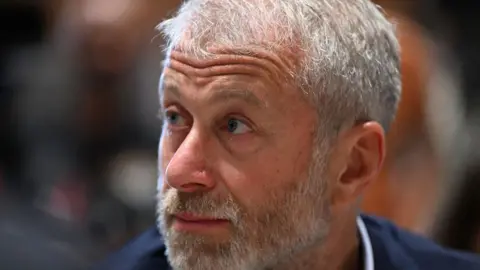The relationship between the UK government and Roman Abramovich, the former owner of Chelsea Football Club, has hit a critical juncture with the announcement that the government intends to initiate legal action against him. This move centers around the proceeds from the sale of Chelsea, amounting to an impressive £2.5 billion. Since its sale, these funds have been placed in a UK bank account due to Abramovich’s sanctions, which stem from his connections to Russia during the ongoing conflict in Ukraine.
The UK government’s prevailing concern is to secure the utilization of these funds for humanitarian purposes in Ukraine. They wish to redirect it specifically for Ukrainian aid, asserting that those suffering from the impacts of the war should be the primary beneficiaries. Abramovich, for his part, has expressed a desire for the complete sum to be distributed among “all victims of the war in Ukraine,” a sweeping scope that includes individuals across both Ukraine and Russia.
The political climate has intensified with a joint statement issued by Chancellor Rachel Reeves and Foreign Secretary David Lammy. They conveyed that although they remain open to negotiations, they are fully prepared to take the matter to court if a resolution cannot be reached amicably. They remarked, “While the door for negotiations will remain open, we are fully prepared to pursue this through the courts if required,” illustrating their steadfast commitment to ensuring the proceeds benefit those in need.
This legal threat is a reflection of the UK government’s determination to get aid on the ground in Ukraine as swiftly as possible. The officials emphasized their frustration with the lack of agreement on an alternative distribution plan with Abramovich. The funds currently remain frozen due to legal complexities that arise from the sanctions imposed on him, stemming from his wealth derived from oil and gas ventures that he amassed over decades.
It’s worth noting that Abramovich, who is often linked with Russian President Vladimir Putin—an association he has consistently denied—was given a special license to sell Chelsea under the condition that he does not financially benefit from the transaction. Despite the legal challenges, it remains a point of contention as Abramovich’s legal representatives play a significant role in the ongoing negotiations.
The fallout from this situation showcases the deep concerns surrounding corporate governance and humanitarian efforts amidst warfare. As the representatives highlighted, “We are deeply frustrated that it has not been possible to reach agreement on this with Mr. Abramovich so far,” underlining the urgency to capitalize on the funds for immediate humanitarian assistance. The situation has led to serious discussions within the House of Lords, as one committee mentioned that it was “incomprehensible” how Abramovich’s assurances regarding the funds had yet to be fulfilled, noting that the long-standing impasse has cast a shadow not just on Abramovich but also on the UK government’s effectiveness in advocating for a more binding commitment.
In conclusion, the significant financial implications of this controversial situation represent more than mere numbers on a balance sheet; they highlight the broader humanitarian crises fostered by conflict and the intricate entwining of sports, governance, and international relations. With high stakes involved, both sides are now on the verge of a court battle to determine the ultimate fate of the funds and, by extension, the assistance they may bring to the war-torn regions of Ukraine. The months ahead will be crucial as this scenario unfolds, revealing the complexities of addressing humanitarian needs amidst the growing tension of geopolitics.



